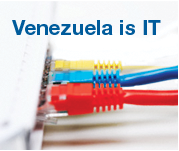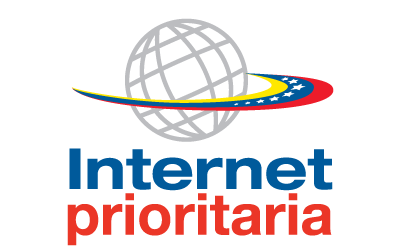Statement
The Venezuelan state has labeled internet use a superfluous and luxurious item by
including it in Decree No. 6649, published in the Official Gazette dated March 22nd,
2009. Said decree is titled Presidential Instructions for the Elimination of Luxury or
Superfluous Expenses in the Public Sector. By submitting internet use to the consideration of the Executive Vice-president, the
decree violates the public policies of the Venezuelan state, since internet was
declared a priority in Decree No. 825 and the State has made efforts to use
internet for the benefit of efficiency in public administration, health and education.
Decree No. 6649 could affect the development of projects linked to information
technologies. It concerns us that internet use be labeled a superfluous activity in academic
activity and university life. Internet’s collaborative, free-access, horizontal and
universal nature has made it a natural stronghold of science. Venezuela is part of
different international research projects supported by internet use. Without internet,
it would have been impossible to measure our capacities and to generate
contributions in several knowledge areas such as medicine, biology and
geography. The National Center for Technological Innovation and the Academic
Network of National Research Centers and Universities channel our participation
as a country in the Latin American Cooperation Network of Advanced Networks
(Spanish acronym RedCLARA). The purpose of the latter is to facilitate high-level
research in Latin America by connecting it to its scientific peer communities in
Europe, Asia, the Pacific and North America, thus allowing access to data bases
and laboratory and scientific instruments throughout the world. We must
guarantee that the sustainability of university projects based on information
technologies is not affected by budget cuts. We share the government’s concern with the need to decrease public spending.
However, we deem it inconvenient to decrease the budget assigned to internet use
and to the technological platforms that support it. These investments contribute to
the optimal use of resources in public administration, health and education. We
propose considering cost rationalizing mechanisms different from those that bar
the normal development of internet projects in public institutions.
Internet is a necessary tool for social development and for free access to
knowledge, thus we urge:.
- To exclude internet use from Decree No. 6649 titled Presidential Instructions for the Elimination of Luxury or Superfluous Expenses in the Public Sector, since the elimination of internet in the public sector is not an appropriate mechanism to optimize investment in development and appropriation of
information technologies.
- To maintain the status of internet use a priority, as established by Executive
decree No. 825..
- To decree good practice internet policies in order to save bandwidth in
public institutions and to develop strictly institutional measures for internet
use, so as to rationalize use of this service.
- To develop technologies associated to internet use that may help optimize
public resources and foster institutional education on internet’s effective
application.
One of the strategic objectives of the 2007 – 2013 National Plan for
Telecommunications, Informatics and Postal Services, is to optimize administrative
processes and to boost electronic government through the use of information
technologies, of which internet use is a fundam ental axis. In practice, much
progress has been made in processes such as passport applications, income tax
payment, review of public data for social comptrollership and other activities that
make internet use an increasingly natural trait of public administration.
The State passed the Law of Data Messages and Electronic Signatures and the
Special Law of Electronic Crimes, both of which constitute an avant-garde legal
framework for the novel transaction mechanisms facilitated by electronic
communication. With the application of these laws and similar strategies, savings
of more than 80% in office materials have been estimated, since electronic
communications take the place of traditional registries of information in public
management. The recent investment of 400 million US dollars in the Simón
Bolívar Satellite is a clear example of the state’s trust in information technologies
for developing social projects. Sustainability and optimization of these ideas
depend to a great extent on internet use continuing to be a priority.
We propose the application of policies that encourage an institutional culture that fosters activities such as videoconferences to carry out meetings and discussions, and the use of technologies such as Voice over IP. These two technologies are examples of practices that would allow considerable savings in telephone bills and per diem expenses. We also propose the decreeing of good practices for internet use that entail savings in bandwidth in public institutions and the establishing of strictly institutional measures for internet use that help rationalize the use of this service.
The World Summits on the Information Society (Geneva, 2003; Tunez, 2005) have
aimed at designing strategic plans to boost the use of information technologies.
The Río Accords and the eLAC action plan show the importance of the issue for
Latin America and the Caribbean. The IT component of the Andean Project for
Competitiveness also fosters policies on the matter. Venezuela must remain in the
front lines of these possibilities, strengthening public policies on the matter.
We do so undersign this on the twenty third day of April, 2009.
(support list available in the web).
Support the statement








